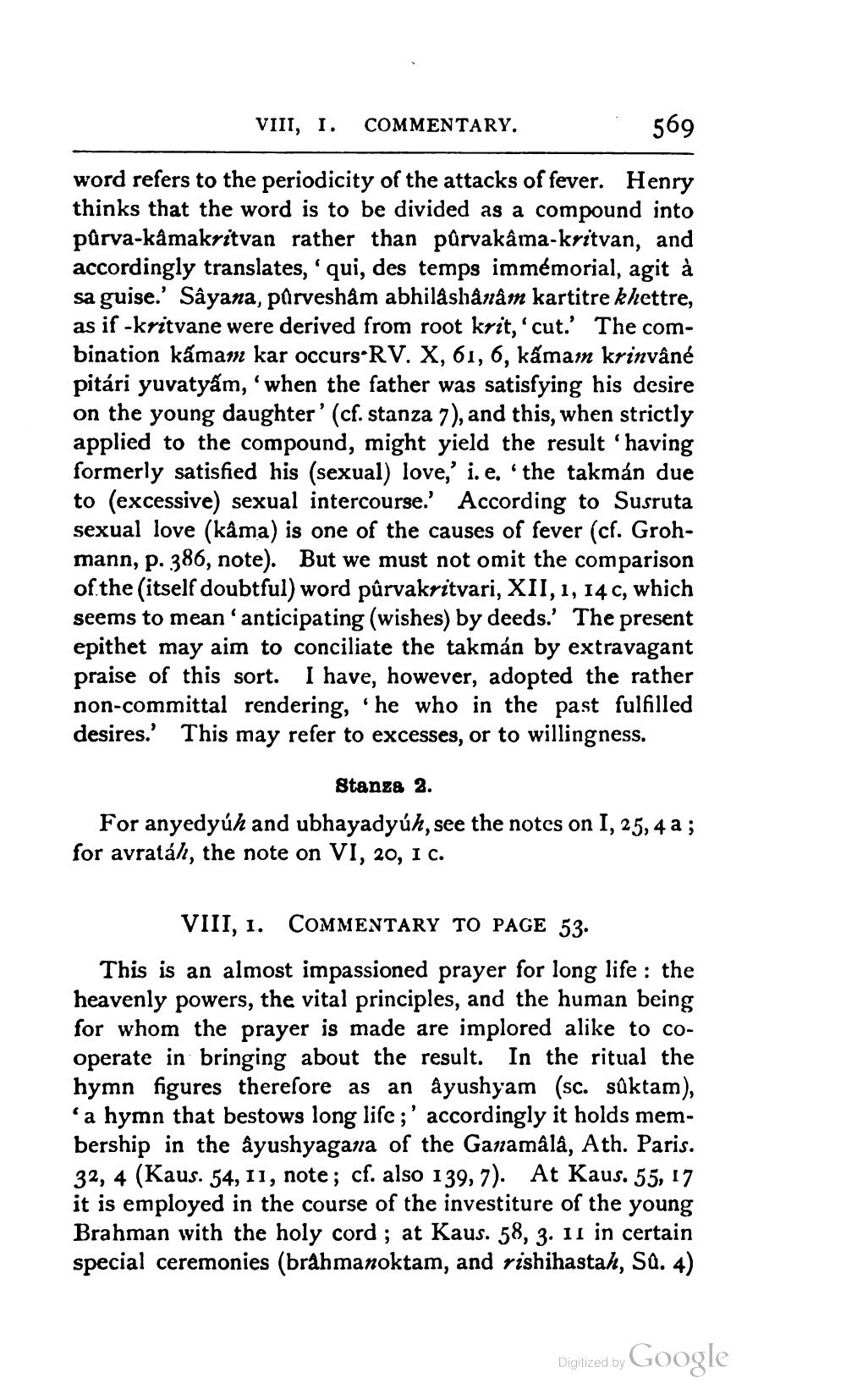________________
VIII, 1.
COMMENTARY.
.
569
word refers to the periodicity of the attacks of fever. Henry thinks that the word is to be divided as a compound into purva-kamakritvan rather than purvakâma-kritvan, and accordingly translates,' qui, des temps immémorial, agit à sa guise.' Sâyana, purvesham abhilashånám kartitre khettre, as if -kritvane were derived from root krit, cut.' The combination kamam kar occurs RV. X, 61, 6, kấmam krinvané pitári yuvatyám, when the father was satisfying his desire on the young daughter' (cf. stanza 7), and this, when strictly applied to the compound, might yield the result 'having formerly satisfied his (sexual) love,' i. e. 'the takmán due to (excessive) sexual intercourse.' According to Susruta sexual love (kâma) is one of the causes of fever (cf. Grohmann, p. 386, note). But we must not omit the comparison of the (itself doubtful) word pûrvakritvari, XII, 1, 14 C, which seems to mean'anticipating (wishes) by deeds. The present epithet may aim to conciliate the takmán by extravagant praise of this sort. I have, however, adopted the rather non-committal rendering, he who in the past fulfilled desires.' This may refer to excesses, or to willingness.
Stanza 2. For anyedyúh and ubhayadyúh, see the notes on I, 25, 4a ; for avratáh, the note on VI, 20, 1 C.
VIII, 1. COMMENTARY TO PAGE 53. This is an almost impassioned prayer for long life : the heavenly powers, the vital principles, and the human being for whom the prayer is made are implored alike to cooperate in bringing about the result. In the ritual the hymn figures therefore as an ayushyam (sc. sûktam), 'a hymn that bestows long life;' accordingly it holds membership in the dyushyagana of the Ganamâlâ, Ath. Paris. 32, 4 (Kaus. 54, 11, note; cf. also 139, 7). At Kaus. 55, 17 it is employed in the course of the investiture of the young Brahman with the holy cord ; at Kaus. 58, 3. 11 in certain special ceremonies (brahmanoktam, and rishihastah, SQ. 4)
Digized by Google




